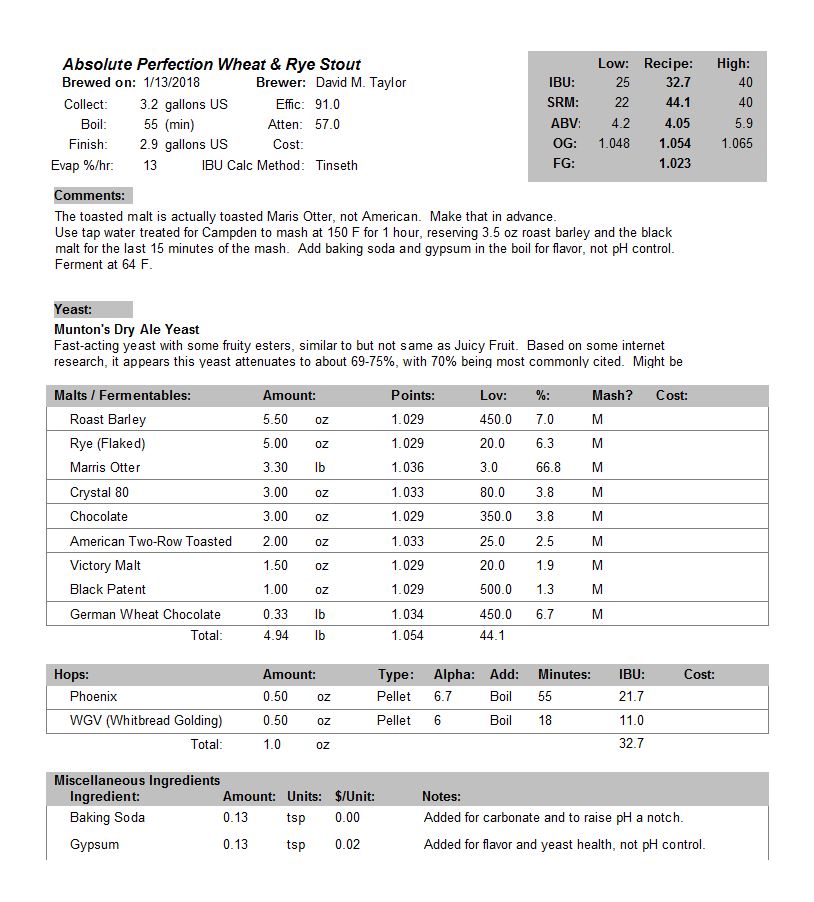So, I enjoy rye beers. I make a decent rye pale ale, and a really solid rye lager. There's not a ton of rye beers out there commercially. Found summit frost line rye IPA last spring and its outstanding. But one thing I never considered was a rye stout, until I found this:
Repo Man®
It's a phenomenal beer. I'm not looking to recreate it, because it appears I can buy it locally (one shop suddenly has a few choices from that brewery), but I would like to just make a nice tasty rye stout.
Anyone have any experience in brewing one? On the site, they state they use 20%, which is sort of that border of adding rye that few people cross, but I'm debating pushing that limit into the 40s with both malt and flaked rye. My lager uses 20%. My rye IPA is just under 30 and my my pale ale sits in the teens. Anyone get into that range of 40-50? I biab, and draining it sucks, but I can deal with it since the grain bill is smaller (3g batch, less than 8lb total).

This is where my recipe is sitting at the moment. It looks nice and safe. But I'd like to go 50/50 on the 2row/rye, which bumps it to 40% + flaked rye. At what point do things go squirrelly? Even debated throwing in some crystal rye, but I think that beautiful flavor would get covered up by the roast anyways.
I hate to call anyone out, but @dmtaylor I have seen you mention rye in several other posts. And you seem like you'd be crazy enough to dabble with high quantities.
Repo Man®
It's a phenomenal beer. I'm not looking to recreate it, because it appears I can buy it locally (one shop suddenly has a few choices from that brewery), but I would like to just make a nice tasty rye stout.
Anyone have any experience in brewing one? On the site, they state they use 20%, which is sort of that border of adding rye that few people cross, but I'm debating pushing that limit into the 40s with both malt and flaked rye. My lager uses 20%. My rye IPA is just under 30 and my my pale ale sits in the teens. Anyone get into that range of 40-50? I biab, and draining it sucks, but I can deal with it since the grain bill is smaller (3g batch, less than 8lb total).

This is where my recipe is sitting at the moment. It looks nice and safe. But I'd like to go 50/50 on the 2row/rye, which bumps it to 40% + flaked rye. At what point do things go squirrelly? Even debated throwing in some crystal rye, but I think that beautiful flavor would get covered up by the roast anyways.
I hate to call anyone out, but @dmtaylor I have seen you mention rye in several other posts. And you seem like you'd be crazy enough to dabble with high quantities.
























































![Craft A Brew - Safale BE-256 Yeast - Fermentis - Belgian Ale Dry Yeast - For Belgian & Strong Ales - Ingredients for Home Brewing - Beer Making Supplies - [3 Pack]](https://m.media-amazon.com/images/I/51bcKEwQmWL._SL500_.jpg)


